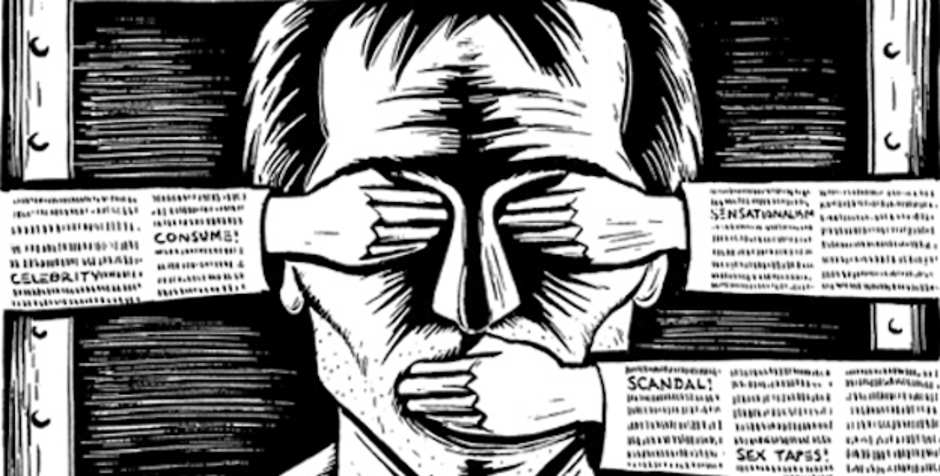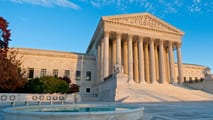

Abortion: Serious Restrictions to Freedom of Speech in France
Abortion - censorship
On the 1st of December, the Assemblée nationale will vote through the urgent procedure a bill of law aiming at widening once more the ambit of the crime of obstruction to abortion.
At the beginning, as adopted by the Neiertz law in 1993, the crime of obstruction aimed at sanctioning the commandos who physically disrupted the functioning of the abortion clinics. This crime was then widened first by the law of 4 July 2001 to exercising “moral and psychological pressures” and then by the law of 4 August 2014 for real equality between women and men to “access to information” on abortion.
Alas, it is not enough; freedom of speech of opponents to abortion should be even more repressed. The new text condemns to two years of prison and €30.000 fine the mere fact of trying to “dissuade” a woman or her relatives to recourse to abortion by publishing “assertions, indications or presentations distorted and aiming at intentionally mistaking people” One could hardly be vaguer in the description.
It is difficult to understand how the mere consulting of a website information page could obstruct the practice of an abortion or the information about it. This vague crime is opened to the most extensive interpretations, in pure violation of the fundamental principle of the strict interpretation of penal law, the legislator having to “define the crimes in terms precise and clear enough to exclude arbitrary decisions” according to the Conseil constitutionnel. It is obviously not the case here. A new piece of evidence of the bias of the bill of law: a person who would give distorted information with an incentive aim would not be prosecuted. Yet, in fact, there are much more women coerced to abort because of the pressure of their relatives than dissuaded just through looking at a website.
The extensively liberticidal aim of this crime appeared as early as the 2013 report on “access to abortion in the territories” of the High Council for Equality between women and men (Haut-Conseil à l’égalité entre les femmes et les hommes), which is at the origin of the crime of obstruction. This High Council believed that prolife websites exercised “psychological obstruction” to abortion in trying to “systematically dissuade women to exercise their right to abortion” and hence must be condemned.
The crime of obstruction also applies to doctors. During the debate in the Senate in 2013 of the previous extension of the crime of obstruction, Laurence Rossignol (minister of health) already wondered “whether it shouldn’t be extended to medical staff”. For the High Council, the mere use of words such as “‘recidivist’, ‘comfort abortion’ or even ‘contraceptive failure’” would be part of a “form of obstruction to abortion”. Through these words, professionals would be guilty of expressing “archaic and moralising representations” and would participate “in the guilt-tripping of women and to not making abortion a legitimate act of their sexual and reproductive life”. Going even further in their thought police policy, the High Council also considered “adopting a ‘naming and shaming’ approach” towards opponents to abortion, notably through the creation of a “blacklist”.
Thus, as it keeps being extended, the crime of obstruction established a genuine crime of opinion were the mere use of some words is enough to condemn you. The aim is to silence any speech questioning abortion.
While it reclaims itself from the heritage of Simone Veil, this project frontally contradicts what she was declaring in front of the Assembly in 1975. She then asserted that if her law “admitted the possibility of an abortion, it is to control, and, as much as possible, to dissuade the woman to use it”. For her, the 1975 law “create[d] no right to abortion” which “will always be a tragedy”, “which must be avoided at all cost”. The declared goal of the Veil law was to control and prevent abortion, not to encourage nor trivialize it. This is also the commitment taken by France in the United Nations, during the Cairo and Beijing conferences. We there committed to “reduce the recourse to abortion” and to adopt “appropriate measures to help women avoid abortion”. What are we doing in this sense? The recourse to abortion is still very high; it is twice as high in France as in Germany and Italy, which managed to reduce it respectively of 20 % and 50 % in ten years.
The extension of the crime of obstruction is also contrary to the Council of Europe, whose Assembly invited in 2008 the States to “provide counselling and practical support to help women where the reason for wanting an abortion is family or financial pressure” (resolution 1607 of 2008). This help is precisely what websites like www.ivg.net, targeted by the government, try to give.
This project also directly violates freedom of speech, especially the “freedom of the internet” which is promoted globally as a condition of democratic life. It is very probable that if this law was brought to the European Court of Human Rights, France would be condemned as was Germany, for censoring a person who had compared abortion to the Holocaust. The Court of Strasbourg indeed ruled that the debate on abortion was of “public interest”, and enjoys a very high protection, including regarding “information or ideas […] offend, shock or disturb”. It is the very existence of a “democratic society” that is at stake here. Undoubtedly, websites which sincerely aim at helping and dissuading women from aborting fall under the scope of a total freedom of speech guaranteed in the European law.
On the other hand, this new extension of the crime of obstruction is good news for the defenders of life. It shows, and it is already a victory, that the feminist rearguard is now doomed to grossly punish freedom of speech to defend its liberticidal ideals. It also shows that the normalization of abortion is a failure; eight million abortions in France since 1975 leave marks. Maybe this law even offer a platform and their most beautiful legal victories to the defenders of life, proving once more that unfair laws come home to roost.
Translated by BMG













